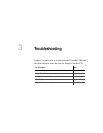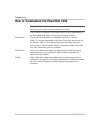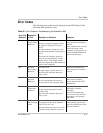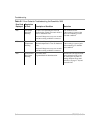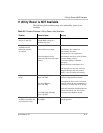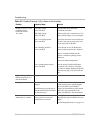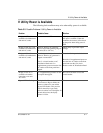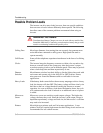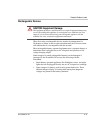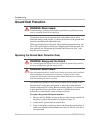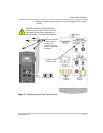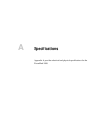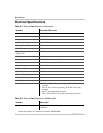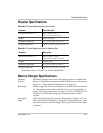
Troubleshooting
3–8 975-0288-01-01
Possible Problem Loads
The inverter can drive most loads, however, there are special conditions
that can cause a load to behave differently than expected. The following
describes some of the common problems encountered when using an
inverter.
Ceiling Fans Most large diameter, slow turning fans run correctly, but generate more
noise than when connected to utility power. High speed fans tend to
operate normally.
Cell Phones Some cellular telephones experience interference in the form of a clicking
sound.
Clocks The inverter keeps the frequency accurate to within a few seconds a day;
however, external loads in the system may alter the inverter’s output
waveform causing clocks to run at different speeds. There may be periods
where clocks keep time and then mysteriously do not.
Dimmer
Switches
Most dimmer switches lose their ability to dim the lights when used with
an inverter and operate only in the fully ON or OFF position. Newer,
microprocessor controlled dimmers tend to work better in inverter
applications.
Heavy Loads If the battery bank cannot deliver the necessary amperage to drive a heavy
load, the inverter will shut OFF. The battery voltage will then slowly rise
back above the low voltage threshold causing the inverter to resume
operation. As soon as the heavy load draws the batteries down, the cycle
will continue unless the load is reduced or an additional source of power
is added.
Microwave
Ovens
Microwave ovens are sensitive to peak output voltages. The higher the
voltage, the faster they cook. Since the inverter’s peak output voltage is
dependent upon battery voltage and load size, the microwave’s cook time
may need to be increased.
Printers Most inkjet type printers work well in inverter applications. Laser
printers, however, require high current for their fusing circuit and are not
recommended for use with an inverter.
WARNING: Fire Hazard
Transformerless Battery Chargers are not to be used with any model of the
PowerHub 1800 family. Connecting a transformerless battery charger could
result in a overheating condition and possibly a fire.




